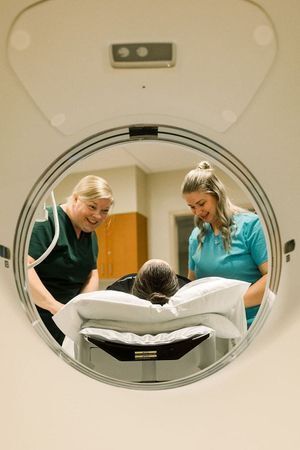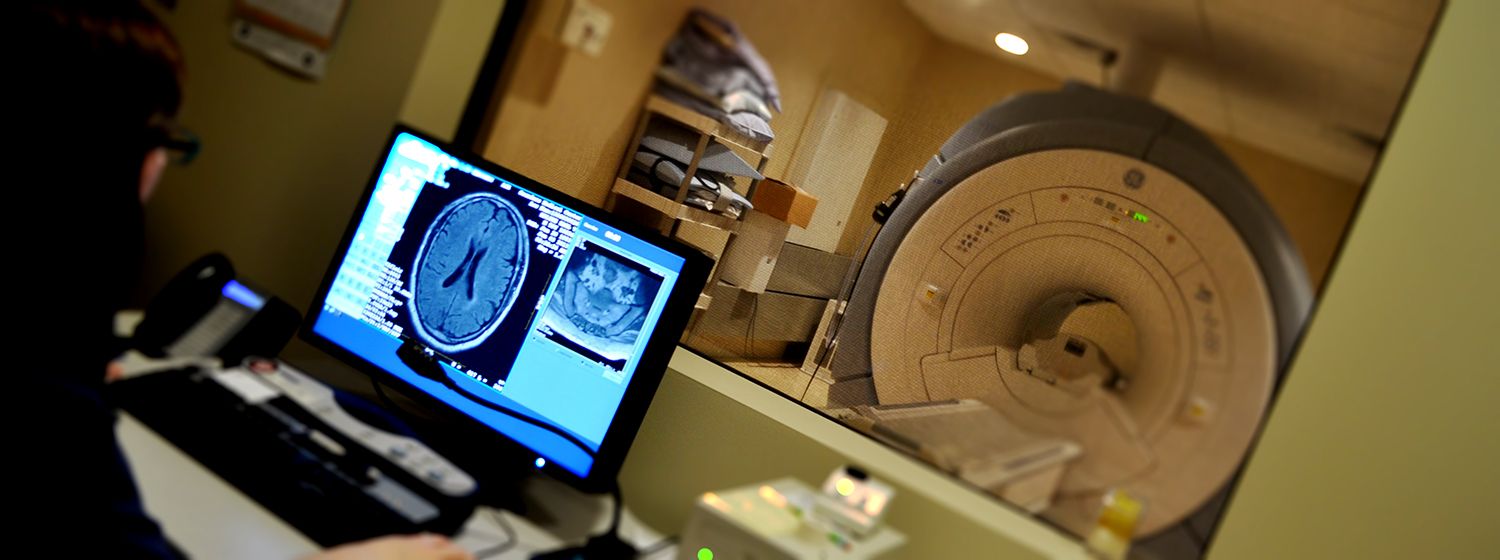
Magnetic Resonance Imaging
Magnetic Resonance Imaging uses radio waves and a strong magnetic field to produce images of body tissue and organs. The magnetic field excites and then relaxes protons of the body, causing an emission of radio signals. The signals are then processed by a computer to produce an image.
MRI Scanner
The MRI scanner is a circular tube that has an opening in the center through which the body passes. The opening is longer than that of a CT scanner. At SMC we offer a wide bore scanner that allows for a wider and shorter opening compared to a traditional MRI. The scanner produces loud noises during the procedure that will require you to wear earplugs or a headset to protect your ears.
Clothing
You will possibly be asked to change into a gown for some MR scans. You will be asked to remove jewelry, watches, wallets, removable dentures, hearing aids, glasses or body jewelry before your scan. You will also be asked to complete a written questionnaire of your surgical history and any procedures you have had in your lifetime. It is very important that you complete the form with extreme accuracy and inform the technologist of any metal that may exist in your body, as the magnetic field is very strong. The technologist will ask several questions regarding the presence of a pacemaker, brain aneurysm clips, artificial limbs, or any metal screws or surgical clips. You will also be asked if you have ever had a gunshot to the body or if you have any shrapnel in your body. If the possibility of metal exists in your body, you may need to have an X-ray to verify its existence. The Radiologist will evaluate the X-ray and determine if we may proceed with the MRI.
Time
Your exam will be ordered by your physician. It may be required or suggested that you check with your insurance carrier for pre-certification or pre-authorization in order to obtain your policy's stated benefits. This may take some time, depending on the accessibility of an insurance representative. The procedure will usually last approximately 45 minutes to 1 hour per exam. If multiple exams are to be completed, allow extra time for each exam. Images will be sent online to a radiologist (a doctor who specializes in reading MRIs).
Contrast
Some scans require an injection of a contrast solution that will be injected into a vein, usually in your arm. This contrast will show abnormal enhancement of tissues in the body. The contrast is different than that used in CT exams and is less likely to cause an allergic reaction, such as contrast used for CT scans. Be certain to inform the technologist if you have ever experienced an allergic reaction during any previous MRI test.



